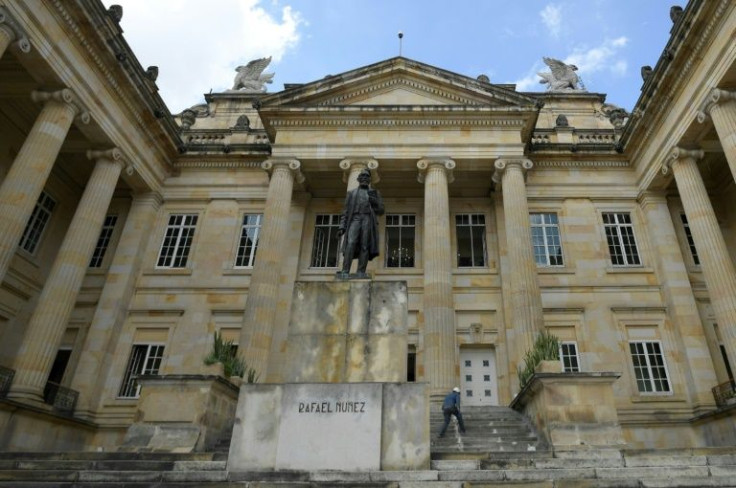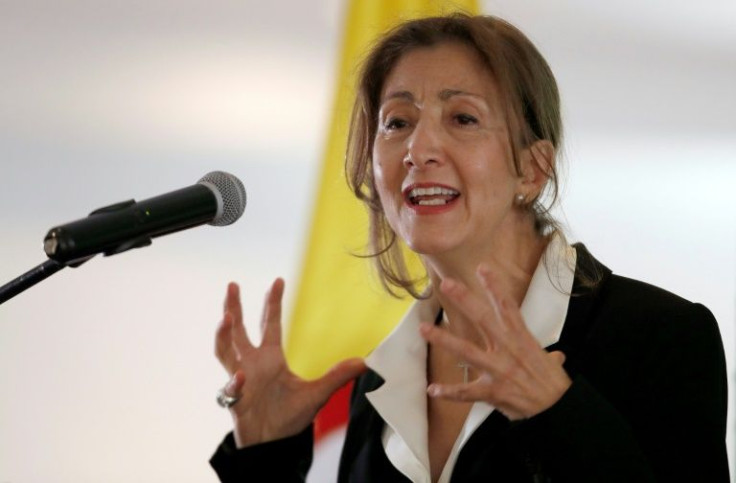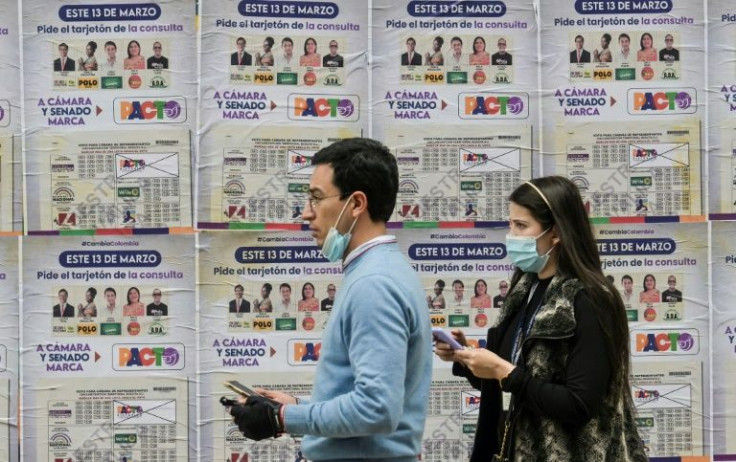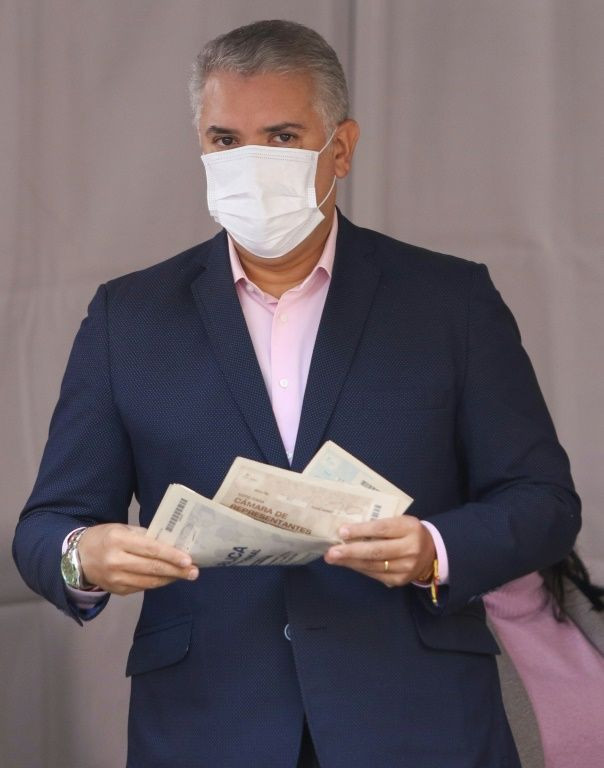Ex-guerrilla Petro Front Runner In Colombia Presidential Primaries
Colombians voted for senator and former guerrilla Gustavo Petro as the left's presidential nominee by a wide margin on Sunday, making him the front runner in an election that could yield the country's first-ever leftist leader in May.
As predicted, the 61-year-old came out on top in the primaries -- called inter-party "consultations" -- which took place alongside elections for the Senate and House of Representatives, currently in the hands of right-wing parties.
But leftist candidates were projected to tie with the Conservatives for the most seats in Colombia's Senate and contend for second place in the lower house, partial results showed.

With the votes counted at 98 percent of polling stations, the left's Historical Pact coalition is set to win 16 of the 102 seats in the upper house -- the same number as the Conservatives -- ahead of the Liberals on 15, according to electoral authority figures.
In the lower house, it looks set to take 25 of the 165 seats in a tie with the Conservatives and behind the Liberals on 32.
Nearly 39 million of Colombia's 50 million inhabitants were eligible to vote in a complex but critical election in a country plagued by violence and growing poverty levels.
"Colombia saw an election day with transparency and respect for rights," election authority head Alexander Vega said, referring to a largely incident-free vote.

Outgoing President Ivan Duque -- who called on Colombians to vote in a "rejection of violence" and "triumph of democracy" -- had promised safety "guarantees" for the non-compulsory vote.
The polls came with the president and legislature both at rock-bottom levels of public support.

Colombia has always been ruled by the political right. But polls show that Petro -- a former guerrilla, ex-Bogota mayor and senator -- stands a real chance of winning.
Centrist Ingrid Betancourt, who was once held hostage by the guerrillas of the now-defunct Revolutionary Armed Forces of Colombia (FARC), won her coalition's nomination Sunday. She presents herself as an alternative to both the ruling right and Petro.
Sunday's process is to yield three presidential contenders from 15 candidates hoping to represent groups of politically aligned parties -- one each for the left, right and center.

Three others have already been chosen by their respective groupings.
Six finalists will face off in a first round of presidential elections on May 29, which will be followed by a runoff on June 19 if no one wins an outright majority.
Petro came away with more than 80 percent of the vote from the Historical Pact coalition, winning against environmentalist Francia Marquez, who snagged 15 percent of the left's vote, to represent the group at the polls this spring.

Voters flocked to the polls in Bogota, although heavy rain at midday threatened turnout.
"I vote to change this Congress, where it is always the same people who do nothing" for years, nurse Carolina Lopez, 30, told AFP.
Colombia's distrust of the left is widely associated with FARC and other rebel groups that fought the government in a nearly six-decade civil conflict.
"When the government is unpopular, there is alternation and the opposition wins, but in Colombia, this is new: the left has never really been in a position to win an election," said analyst Yann Basset of the Rosario University in Bogota.
In 2018, Petro lost the presidential race to Duque, who is leaving office as his country's most unpopular president in history following a year marked by social unrest and a violent police crackdown that drew international condemnation.
"Today, change starts at the polls, with a vote that supports hope and life in Colombia," Petro said while voting.
It is also Betancourt's second presidential run: she was abducted 20 years ago while campaigning and held captive in the jungle for more than six years.
Her vice presidential running mate is set to be retired colonel Jose Luis Esparza, who rescued Betancourt from her FARC captors.
Colombian presidents serve a non-renewable four-year term.
At midday, the government said there was "total normality" in voting throughout the country. But the army reported two soldiers had been killed and another two wounded in bomb attacks in southern Colombia.
The country's election authority confirmed an attempted cyberattack against its website before polling had begun, which they said was immediately controlled.
And Interior Minister Daniel Palacios said there had been 662 reports of incidents related to the vote, including 166 complaints, 120 cases of voter coercion and 120 cases of attempted bribery.
Duque's successor faces a multitude of challenges, not least of which is a new cycle of murders and kidnappings as violence has surged despite a 2016 peace deal that disarmed the FARC and officially ended the civil war.
Fighters of the leftist National Liberation Army still battle dissidents of the disbanded FARC, paramilitary forces and drug cartels for territory, resources and smuggling routes in Colombia, the world's largest cocaine exporter.
The new president will also have to contend with an economy hard hit by the fallout from the coronavirus pandemic.
© Copyright AFP {{Year}}. All rights reserved.





















